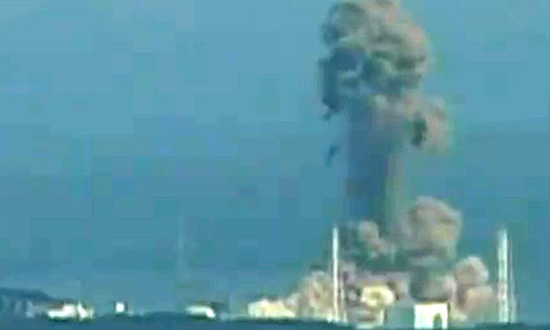[caption id="attachment_2749" align="alignnone" width="550" caption="The photo shows the second hydrogen explosion at the Fukushima Dai-Ichi No. 3 reactor in Japan."] [/caption]
[/caption]
The ongoing nuclear crisis in Japan has sparked new life in the nuclear energy debate in many countries. And the fear for possible nuclear accidents in other countries forces politicians to reconsider and review their current energy policy stance.
The continued protests against nuclear energy in Germany has seen an upswing during these past days. About 60,000 people formed a chain around a nuclear power station in Germany this weekend to protest its continued operation. And chancellor Angela Merkel is expected to announce the suspension of the country's plans to extend the life of its nuclear power stations later today, the Guardian reports.
In USA people and politicians are starting to question President Barack Obama's plans to expand and build new nuclear power plants to meet growing energy demands in the country. The independent and strongly pro-nuclear Senator Joe Lieberman, chairman of the Senate Homeland Security and Governmental Affairs Committee, have said that the USA should "put the brakes on nuclear power plants":
In Britain the Green lawmaker Caroline Lucas have said that the Japanese nuclear crisis strengthens the case against new nuclear construction. "You will never be able to completely design out human error, design failure or natural disaster," she said. Walt Patterson, associate fellow at London's Chatham House thinktank, said that, the financial damages of a potential nuclear accident also played a big role in shaping the energy debate in Brian and Europe.
The plans to expand nuclear energy in India for around $175 billion might, in light of the current situation in Japan, see a strong public backlash, analysts and experts say:
While the nuclear crisis in Japan might not change the Chinese government's plans to develop more nuclear power it could force China to review their energy policies. The current situation in Japan "may become a factor in the drafting of China’s energy plans, Xie Zhenhua, vice chairman of the National Development and Reform Commission, said in Beijing."

Recommended Comments
Join the conversation
You can post now and register later. If you have an account, sign in now to post with your account.